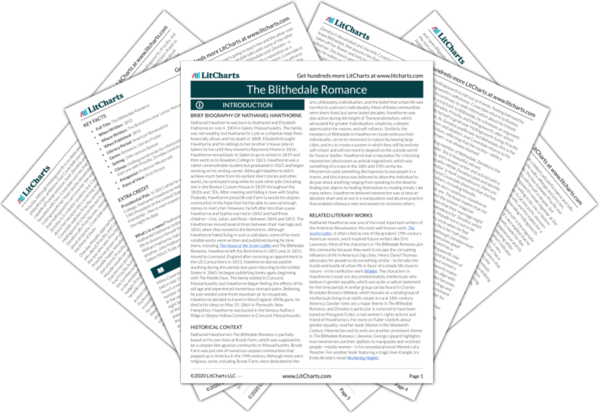The “girl” Westervelt and Zenobia are talking about is Priscilla. What parts of their conversation Coverdale catches indicate that Westervelt knows more about Priscilla than almost anyone else, and he knows what connects the two women. Zenobia mourns being in a “miserable bond,” probably a bond to Westervelt. She doesn’t cry to the legal system to free her from this bond—instead, she asks God. This implies that whatever hold Westervelt has over her transcends a marriage. No worldly power (such as divorce) can truly destroy the toxic relationship between Westervelt and Zenobia.
